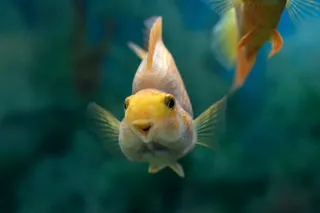The elephant seals that sent data back from underneath Antarctic ice hadn't exactly volunteered for the task—the sensors were glued to their heads. But it was for a good cause. By taking advantage of animals much better equipped to study frigid polar waters than we humans are, climate scientists collected valuable observations. They even got a rare piece of good news: Some ice shelves aren't melting as fast as we thought.
During the Antarctic winter, "harsh climate, strong sea ice cover and permanent darkness put serious limitations" on the ocean sampling researchers can do, says Tore Hattermann of the Norwegian Polar Institute. That's why researchers from around the world are participating in a program called Marine Mammals Exploring the Oceans Pole to Pole (MEOP). Attaching instruments to various kinds of deep-diving seals lets scientists gather ocean data from places that are more hospitable to animals with blubber.
Hattermann and his ...













